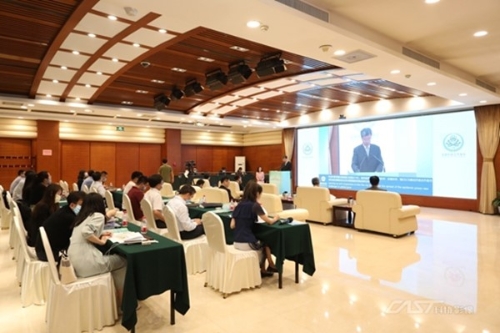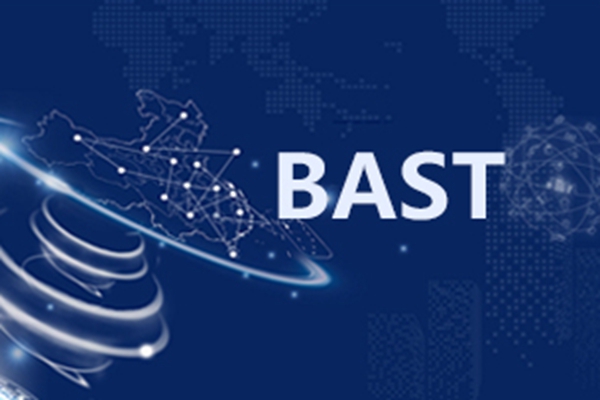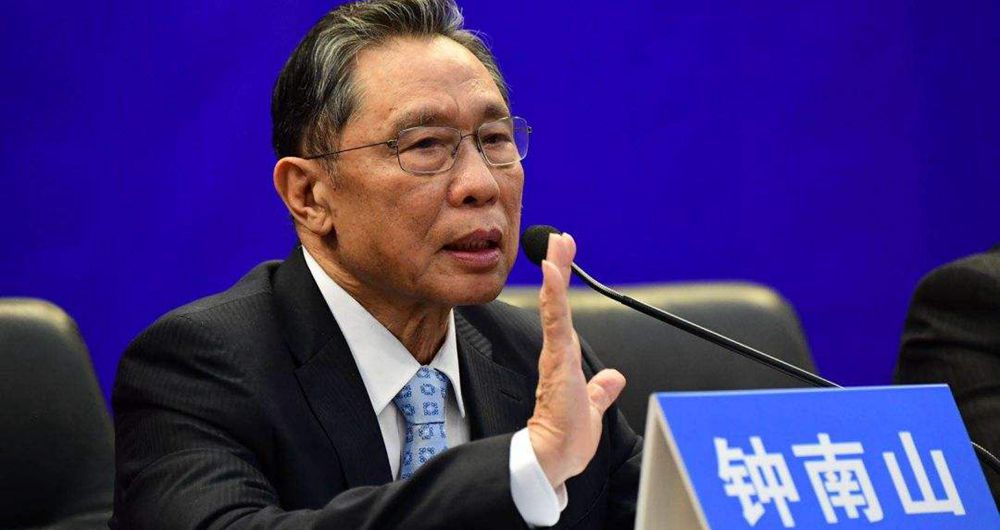Webinar on global science and technology under COVID-19 epidemic held in Beijing
Build consensus on cooperation and jointly tackle challenges.
The International Webinar on Global S&T Development and Governance under the COVID-19 Epidemic was held in Beijing on May 30, 2020.
The International Webinar on Global S&T Development and Governance under the COVID-19 Epidemic is held in Beijing on May 30, 2020.
Themed "Build Consensus for Cooperation and Jointly Tackle Challenges," this webinar was sponsored by the China Association for Science and Technology (CAST), and set its main venue at China Hall of Science and Technology in China’s capital city Beijing.
Huai Jinpeng, executive vice president of CAST, and academician of the Chinese Academy of Sciences (CAS), Mohamed H.A. Hassan, president of the World Academy of Sciences for the advancement of science in developing countries, Margaret Chan, honorary director-general of the World Health Organization (WHO), and Walter Ricciardi, president-elect of the World Federation of Public Health Associations (WFPHA) attended the event and delivered speeches.
Liang Xiaofeng, vice president of the Chinese Preventive Medicine Association (CPMA) and member of the governing council of WFPHA, chaired the webinar.
In his speech, Huai quoted President Xi Jinping’s instruction as saying “Innovation is the primary driving force for development, and science and technologies are powerful tools to overcome difficulties” in his reply letter to 25 Chinese sci-tech worker representatives ahead of the fourth National Science and Technology Workers Day of China on May 29, 2020.
Enhancing solidarity and trust will bring light of hope when the COVID-19 epidemic is posing threats on the lives and health of people around the world, Huai noted, adding that scientists from all countries should enhance mutual understanding and trust, and foster strong synergy against the epidemic.
Science and rationality can solve crisis, and sci-tech innovation shall effectively cope with global challenges, including major infectious diseases, Huai stressed.
He also pointed out that governance shall be advanced through opening-up and cooperation, calling for unremitting efforts from global scientists to build a community of common health for mankind.
Huai said that countries should enhance international exchanges and cooperation to make joint efforts to safeguard global public health security, promote sci-tech innovation and advancement to help realize the goal of sustainable development, and encourage science and technology organizations to bring their roles into full play in facilitating the transformation of the global governance system.
He said the Chinese sci-tech sector is willing to strengthen exchanges and cooperation with global countries to maintain sustainable development through science and technology and jointly protect the shared homeland of mankind.
Hassan expressed his gratitude for the assistance China offered to epidemic-hit countries, especially African countries, expressing his admiration for the international cooperation on COVID-19 control carried out by Chinese scientists. He also spoke highly of CAST for its science-based epidemic prevention and control approach.
Besides, Hassan called for deeper international cooperation, especially South-South cooperation, to advance science, technology, and innovation, deal with the epidemic and other challenges, benefit developing countries and improve the wellbeing of all mankind.
International cooperation in science and technology can do much to advance the development of COVID-19 vaccines, and the only way to defeat the virus is still through solidarity and cooperation, Chan remarked in her speech.
She suggested that the world strengthen the construction of a global scientific and technological collaboration system and establish an open platform for sharing the COVID-19 diagnosis, treatment, and research data, as well as experiences on R&D of medicines and vaccines.
She called on countries to deepen scientific and technological exchanges to deal with global public health challenges and the Chinese science and technology sector should play a key role in scientific cooperation and management.
Ricciardi expressed his gratitude to China for the help it offered Italy during the epidemic. He pointed out that international cooperation should be made more open, transparent and structured. The WFPHA is willing to offer support for public health development in each country, and hopes more organizations, institutions and individuals can actively join in the international cooperation.
Wang Chen, academician and vice president at the Chinese Academy of Engineering and president of the Peking Union Medical College, Xue Lan, director of the China Institute for Science and Technology Policy at Tsinghua University, Marlene Kanga, former president of the World Federation of Engineering Organizations (WFEO), Atsushi Sunami, executive director of the Sasakawa Peace Foundation and president of the Ocean Policy Research Institute of SPF, Bettina Borisch, executive director of the WFPHA and professor of public health with University of Geneva, John Nkengasong, director of the Africa Centers for Disease Control and Prevention, Dong Xiaoping, director for global public health center under the Chinese Center for Disease Control and Prevention and Luis Eugenio de Souza, professor of the Federal University of Bahia, gave online interviews, delivered expert reports and carried out roundtables at the webinar on a wide range of topics, such as the role of Fangcang Hospitals in epidemic response, the importance of sci-tech innovation and its international cooperation in coping with major challenges, the significance of improving global governance amid the COVID-19 epidemic, and strengthening the construction of public health infrastructure under international cooperation platforms such as the Belt and Road Initiative.
The event was co-organized by the Department of Academic and Societies Affairs of CAST, the CPMA and Tencent Medpedia.
Experts from Italy, Switzerland, Sudan, Japan, Australia, Brazil and Singapore took part in the event, which was livestreamed by dozens of media outlets, including People’s Daily Online, CGTN.com, China.com.cn, Guangming Daily Online, Tencent, Sina, NetEase and Jinri Toutiao.




